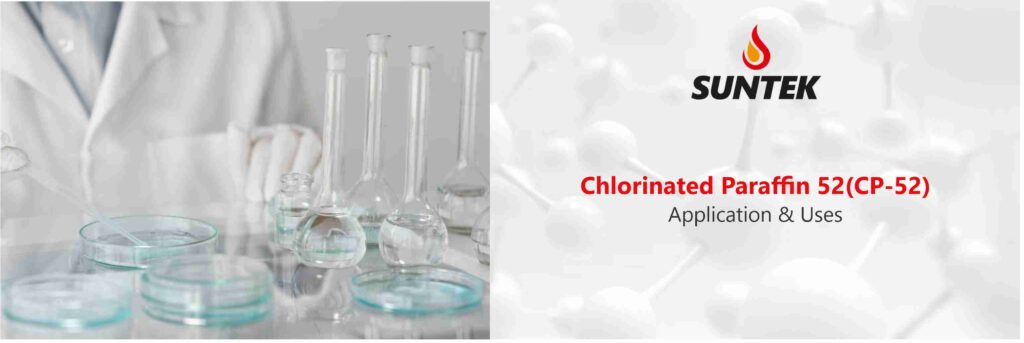KNOW CPW
Chlorinated Paraffins (also known as Chlorinated Paraffins Oil (CPO) and chlorinated paraffins industry association Wax (CPW)) are made by chlorinating paraffins/waxes at different lengths. These Paraffins are used in soft PVC products as secondary plasticizers. Terms such as CP, CPO and CPW can be used interchangeably.
In soft PVC formulations, this plasticizer is used in combination with the primary plasticizers. It is cheaper than primary plasticizers, so processors use it for lower costs.
Using only a secondary plasticizer by itself can lead to product surface deterioration. It is possible to mix it with the primary plasticizer at the right ratio.
PVC contains 56.8% chlorine. CPW (Reducer of Dibutyl Phthalate) or CP can be added to soft PVC formulations to increase the chlorine content and provide fire retardant properties for PVC cable.
Complex mixtures of polychlorinated n–alkanes and isomers make up commercial CPW. They are difficult to separate by standard analytical methods. They are part of the UVCB group (substances with unknown and variable composition, complex reactions products or biological materials).
The following classifications apply to chlorinated paraffins:
1. The length of their carbon-chain length
2. Percentage (degrees) of chlorination


Characteristics of chlorinated Paraffins
Commercial grade CP for PVC typically has 45%, 52%, and 58% chlorine content. Commercial chlorinated paraffin products can be liquid, and have a range of viscosity from very low to very high. It can be more viscous, less viscous, or a solid powder (70% of the chlorine content), depending on its chlorine content. Its specific gravity ranges from 1.15 to 1.35. Chlorinated paraffins have a lighter colour than chlorinated wax, and they are thermally more stable in PVC compounds.
CPW is good at low temperatures. Low-temperature flexibility is reduced by higher chlorine grades.
CPW is stain-resistant for flooring, wall coverings, and upholstery.
CPW provides resistance to aqueous detergent extraction.
Storage:
The colour of chlorinated paraffin can discolour if it is stored at temperatures above 35-40 degree C. It is recommended to use lined storage tanks.
Dehydrochlorination can occur when the material is exposed to heat, light, or the presence of zinc, iron, or both, for a prolonged period of time. Stabilizers such as ESBO can be useful.
PVC processing plants may observe that the color of PVC changes at 180°C for 20 minutes or longer depending on when it is stored.
There is a quality control procedure code IS 9591.1996.
Compatibility with plasticizers or filler:
Chlorinated paraffin with higher levels of chlorine has greater compatibility with plasticizers.
The tolerance of low solvating plasticizers for CPW is very limited.
Fast solvating plasticizers like DBP & TAP, on the other hand, are more tolerant. DBP has a greater tolerance for CPW.
Other secondary plasticizers like ESBO can adversely affect compatibility.
For 51-52% chlorine-containing CP, 1.5 phr is needed to replace DOP.
When CPW is mixed with DOP, the ratio is 70 DOP/30 CP. For DIDP & DINP, the ratio is 80 DIDP / 20% CP.
Tolerance for chlorinated paraffin increases beyond 100 phr. [PVC Flooring uses >150phr CaCO3].
To improve plastisol viscosity stability during aging, 45% chlorine grade CP is possible.

MAJOR USES
Chlorinated Paraffin Wax (CPW) is used in a wide range of industrial applications, including flame retardants and plasticizers. It works as an additive in metalworking fluids, sealants, paints and coatings. Chlorinated paraffin is non-poisonous, inflammable, low volatility, and high insulative.
CPW Widely used as a reducer of CBW in the production of Cable Materials, Floor, Panel, Shoes, Rubber, and other products. It also can be applied in coatings and lubricating oil additives, an excellent external lubricant for PVC processing and other industrial applications. PVC sticks to metal at the time of processing, and hence it is not lubricated externally resulting in non-satisfactory extrusion results.

Why Choose SUNTEK for CPW(Best Reducer of DBP) ?
Suntek has been a success story for over 30 years because of its commitment, dedication, and focus. Suntek has been a leader in the CP and HCL markets thanks to its hard work and skilled workforce.
Thanks to its innovative strategies, diligence, and constant improvement, the company has seen rapid growth. The company’s in-house R&D capabilities, as well as constant improvements in formulations and processes have enabled it to produce products that are technically superior than its competitors.
The company has a large customer base because it understands the customer’s needs in terms of quality and logistics. This was aided by the expertise of packaging, warehousing, and transportation professionals who have worked together to deliver on time and minimize inventory costs.
The company is now a leader in Chlorinated Paraffin in northern India and is growing at an almost 25% CAGR.
SUNTEK is constantly innovating and wants to achieve zenith in each pursuing sector.






